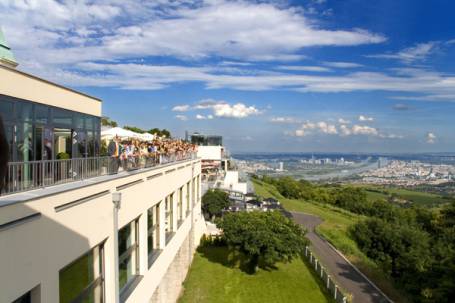
MODUL University in Vienna is located in Vienna district of Kahlenberg with a beautiful view over the whole city. Modul is the first university in Austria that prepares students and candidates in tourism and hotel management area. In the Modul University you can receive Bachelor, Master and MBA (Master of Business Administration) degrees. Vienna Modul University deals with researches and studies in tourism, new technologies, mass media and public administration areas.
The University offers following perspective and demanded programs:
new technologies of mass media
public administration and management
hotel business and tourism
MODUL University in Vienna is located in Vienna district of Kahlenberg with a beautiful view over the whole city. Modul is the first university in Austria that prepares students and candidates in tourism and hotel management area. In the Modul Univer
Read more
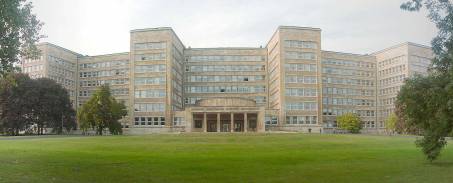
Johann Wolfgang Goethe University of Frankfurt is among the ten largest universities in Germany. The university is named after Johan Wolfgang von Goethe who was born in Frankfurt, the erudite famous for his exclusive contributions to literature, science, and philosophy. Founded in 1914 on private costs, University of Frankfurt, nevertheless, became one of the first "public universities" and further its history developed as a history of one of the most open for general public universities.
At the moment the University of Frankfurt is the only university in Germany which is completely funded by the state, but at the same time has an administrative autonomy and the right to accept private donations. Such model of financing in Germany is seldom used and it gives universities the known share of freedom from the state control in decision-making, including teaching structure. Such "liberties" create the atmosphere of trust between students and teachers at the university, a certain free-thinking and it gives a chance to students to express their opinions, to make non-standard decisions and discoveries.
The university offers preparation for Bachelor, Master and Ph.D. programs on the following faculties:
Faculty of Law
Faculty of Economics
Faculty of Social Sciences
Faculty of Pedagogy
Faculty of Psychology and Sports Science
Faculty of Evangelic Theology
Faculty of Catholic Theology
Faculty of Philosophy and History
Faculty of Linguistic and Cultural Studies
Faculty of New Philology
Faculty of Geology and Geography
Faculty of Informatics and Mathematics
Faculty of Physics
Faculty of Biochemistry, Chemistry, and Pharmaceutics
Faculty of Biology
Faculty of Medicine
Johann Wolfgang Goethe University of Frankfurt is among the ten largest universities in Germany. The university is named after Johan Wolfgang von Goethe who was born in Frankfurt, the erudite famous for his exclusive contributions to literature, scie
Read more

The Technical University of Dresden is one of the largest higher educational institutions in Dresden and Saxony (Germany). By a number of students, Technical University of Dresden is ranked first among the technical universities of Germany.It has approximately 35 000 students and employs over 4000 employees.
The Higher technical educational institution operates in Dresden under different names for more than 200 years, and its modern name "Technical University of Dresden", University received in 1961. It is one of the oldest technical universities in Germany. Dresden University of technology is a member of the largest technical universities union in Germany, called "TU 9”.
The University offers bachelor's, masters and doctoral programs in the following faculties:
Faculty of Mathematics and Natural Sciences (Psychology);
Faculty of Philosophy (History, Political Sciences, Communication Sciences);
Faculty of Philology, Literature, and Culture;
Faculty of Educational Sciences;
Faculty of Law;
Faculty of Economics;
Faculty of Informatics;
Faculty of Electrical and Information Engineering;
Faculty of Mechanical Engineering;
Faculty of Civil Engineering;
Faculty of Architecture;
Friedrich List Faculty of Transport;
Faculty of Forestry, Land and Water Management (forestry in Tharandt);
Carl Gustav Carus Faculty of Medicine.
The Technical University of Dresden is one of the largest higher educational institutions in Dresden and Saxony (Germany). By a number of students, Technical University of Dresden is ranked first among the technical universities of Germany.It has app
Read more
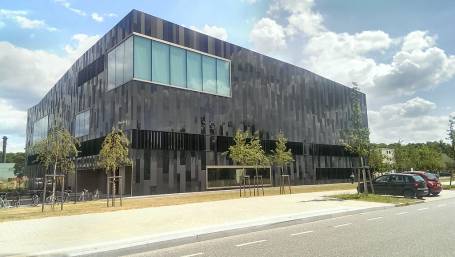
Potsdam University is the fourth largest university in the lands of Berlin and Brandenburg, in eastern Germany. It is known as one of the most reputable educational research centers, not only in Germany itself, but also in Europe. The university attracts students from different parts of the world with high prospects and rich student life.
At the moment, 20878 students in seven faculties are studying at the University:
- Faculty of Law
- Faculty of Philosophy
- Faculty of Humanities
- Faculty of Economics and Social Sciences
- Faculty of Mathematics and Natural Sciences
- Faculty of Engineering
- Faculty of Health Sciences
22% of students are foreigners. The number of professors - 337, researchers - 645, involved in the technical support of the university - 759, the number of foreign employees - 1075.
The university is located on three campuses. The central campus is located in the famous royal park of San Sussi, in the New Palace of Frederick the Great. Here, in the park in other buildings is the Faculty of Philosophy. Such sciences as history, literature, art, media are also taught here.
Current trends in education and the majestic historical heritage create the perfect tandem, which makes studying at the University even more attractive and promising. The university is open to purposeful youth, who understand the true value of knowledge and claim to become the elite of the new time.
Potsdam University is the fourth largest university in the lands of Berlin and Brandenburg, in eastern Germany. It is known as one of the most reputable educational research centers, not only in Germany itself, but also in Europe. The university attr
Read more
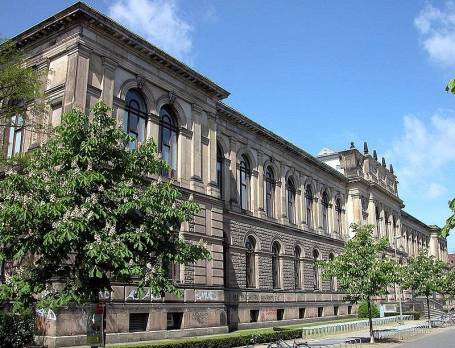
The Braunschweig University of Technology is the oldest educational institution in Germany. The university has an international rank and interacts with such countries as USA, Brazil, China, as well as the countries of Western and Eastern Europe. It has excellent conditions for learning and research: in addition to a wide selection of specialties, you can take part in an international program and receive the so-called "double diploma" that makes you a demanded specialist in the international labor market.
The attractions of the city are very appealing and the relatively short low-cost distances are all that makes learning conditions favorable.
The University offers bachelor's, master's and doctoral programs in the following faculties:
Carl Friedrich Gauss Faculty (of Mathematics)
Faculty of Life Sciences,
Faculty of Architecture, Civil Engineering, and Environmental Studies
Faculty of Mechanical Engineering
Faculty of Electrical Engineering, Information Technology, and Physics
Faculty of Humanities and Educational Sciences
The Braunschweig University of Technology is the oldest educational institution in Germany. The university has an international rank and interacts with such countries as USA, Brazil, China, as well as the countries of Western and Eastern Europe. It h
Read more
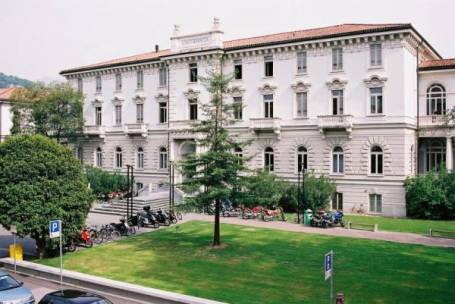
University of Lugano (USI) is the only University that offers studying in the Italian language outside of Italy. The University is located in the Italian part of Switzerland and is a part of the Swiss University system with 9 other cantonal universities and the Polytechnic schools of Zurich and Lausanne. Now USI has 1800 students of more than 30 different nationalities, 150 teachers, 200 assistants and researchers, as well as 80 workers of administrative and technical services.
USI consists of 4 faculties and the Institute of Italian language. According to 2015 data, the University offers 5 undergraduate programs, one of which is taught in English (Informatics) and 17 graduate programs, 12 of which are English-taught.USI has established a network of academic relations with many universities of Switzerland and foreign universities, and the Polytechnic school of Milan. The applicant has a choice of the programs for double degree, master’s cycles in Economics and Communication and cross-border PhD schools.
The University offers training programs on the following faculties:
Academy of Architecture
Faculty of Economics
Faculty of Communication Sciences
Faculty of Informatics
University of Lugano (USI) is the only University that offers studying in the Italian language outside of Italy. The University is located in the Italian part of Switzerland and is a part of the Swiss University system with 9 other cantonal universit
Read more
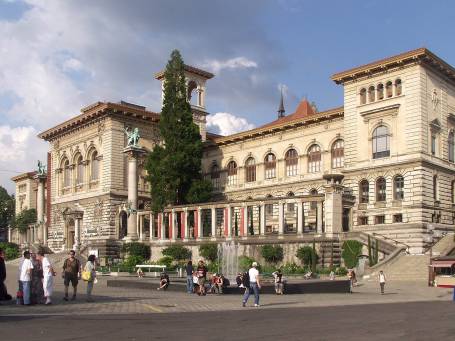
The University was founded in 1890 on the basis of a school of theology (also called the Lausanne Academy) that has been established in 1537. In 1898-1906 a new building was constructed for the University on the money given by the native of Lausanne Gavrylo Ryumin, who was an ancestor of the Russian Ruminih family. This building still has the symbolic name of "Ryumin’s Palace".
Currently there are about 12,000 students and more than 2,200 researchers who study and work in a new and modern campus at the University of Lausanne, located on the banks of Geneva Lake. The campus was built specifically for the needs of the University, near Lausanne, in the Western suburbs of Dorina.
Lausanne is located in the French speaking part of Switzerland, therefore, the University offers the education in French.The University of Lausanne is famous for “Secrets”, an entertaining scientific and detective games, in which all interested students and their parents can participate (Everybody tries to act as a detective, game rules are close to those of Fort Bayard).
The University offers training programs on the following faculties:
Faculty of Theology and Religious Sciences (FTSR)
Faculty of Philology
Faculty of Biology and Medicine (FBM) offers studies in 3 directions: Biology, Pharmacy, and Medicine
Faculty of Business and Economics (HEC)
Faculty of Geosciences and Environment (GSE)
Faculty of Law, Criminology and Public Administration in Schools of Criminal Justice (ESC) and High School of Public Administration (IDHEAP)
Faculty of Social and Political Sciences (SSP)
Faculty of Geosciences and Environment (GSE)
Besides, the University of Lausanne consists of the next schools and departments:
Summer and Winter French courses (Cours de Vacances)
School of French as a second language (EFLE)
The University was founded in 1890 on the basis of a school of theology (also called the Lausanne Academy) that has been established in 1537. In 1898-1906 a new building was constructed for the University on the money given by the native of Lausanne
Read more
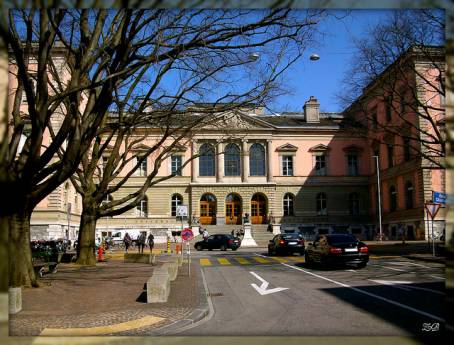
University of Geneva was founded in 1559 by Jean Calvin as a Theological Seminary. The University of Geneva in its modern form is dedicated to the development, training and research. With more than 16 000 students from 140 different nationalities, it is the second largest University in Switzerland.UNIGE offers more than 250 Non-stop education programs, covering an extremely wide range of fields: Exact Sciences, Medicine and Humanities that can be studied on one of the 9 faculties and several affiliated centers and institutes.
Currently language of instruction in the University is French (some subjects are in English, German, Italian, and Spanish). To facilitate learning, the University has a database of almost all the lectures recorded in audio or video format.
Today, the University of Geneva has the following faculties:
Faculty of Law
Faculty of Medicine
Faculty of Natural Sciences
Faculty of Economics and Management
Faculty of Social Sciences
Faculty of Theology
Faculty of Psychology and Educational Sciences
Faculty of Translation and Interpreting
University of Geneva was founded in 1559 by Jean Calvin as a Theological Seminary. The University of Geneva in its modern form is dedicated to the development, training and research. With more than 16 000 students from 140 different nationalities, it
Read more
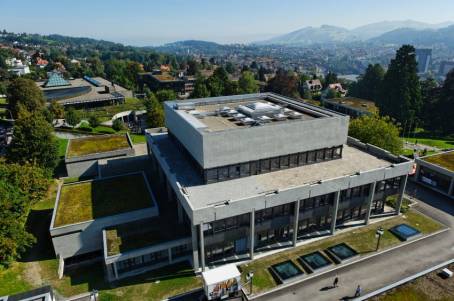
The University is located in St. Gallen, in the German-speaking part of Switzerland; founded as a business academy (1898), in 1911 it got the fully legitimate name of Business University.By its quantitative indexes the University of St. Gallen (HSG) is one of the smallest European universities, but it has the largest Faculty of Economic Sciences in Switzerland. It focuses on training and continuing education of experts and administrators in the area of business, public administration and law. The educational establishment is financed directly by the canton of St. Gallen, which gives full autonomy to the University. Clearly compiled, compulsory curriculum and strict examination system are main features of studying in the university.
Initially, there were no faculties in the university, but after its reorganization (2011) the 5 major faculties, which are used to be called "schools" were distinguished. The University includes about 40 institutes and research centers.HSG also cares about its graduates: there is an official alumni graduates’ Association of St. Gallen (including more than 22 000 members, more than 150 "alumni" clubs on five continents) in the university.
Every year the Association organizes about 300 events and appears to be one of the most active organizations of graduates in Europe. The purpose of the activity lies in assisting to promote the establishment of contacts between former students and support of connections with alma mater.
The University of St. Gallen has 5 schools:
School of Management
School of Humanities and Social Sciences Finance
School of Law
School of Finance
School of Economics and Political Sciences
The University is located in St. Gallen, in the German-speaking part of Switzerland; founded as a business academy (1898), in 1911 it got the fully legitimate name of Business University.By its quantitative indexes the University of St. Gallen (HSG)
Read more
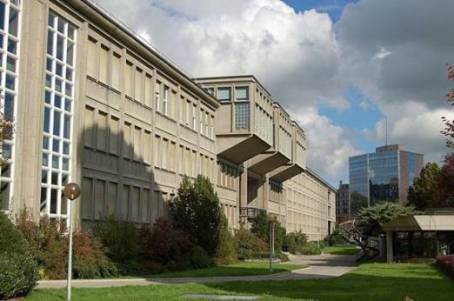
UNIFR is located in the center of Switzerland, and is distinguished by its bilingualism and international character. UNIFR was founded in 1889 and is a unique institution of higher education in Switzerland, which maintains a strong international orientation.Fribourg University offers a wide range of educational disciplines in the frame of 5 different faculties and a number of institutions. Studying is available at your choice in German, French, or in both languages simultaneously. Besides, several international study programs are taught in English. Nearly 10 000 students of undergraduate, graduate and PhD levels receive all the benefits of an excellent infrastructure and additional opportunities that the university provides for its students. In Fribourg University, personal contacts between students and teachers are of great importance as they ensure the preparation of high-quality scientific staff and encourage individual development.The University of Fribourg is included in BeNeFri Network created together with the University of Bern and the University of Neuchâtel with the aim of improving the educational level and the development of partnership in the area of research.
The University of Fribourg has 5 faculties:
Faculty of Theology
Faculty of Law
Faculty of Natural Sciences
Faculty of Humanities
Faculty of Economics and Social Sciences
UNIFR is located in the center of Switzerland, and is distinguished by its bilingualism and international character. UNIFR was founded in 1889 and is a unique institution of higher education in Switzerland, which maintains a strong international orie
Read more
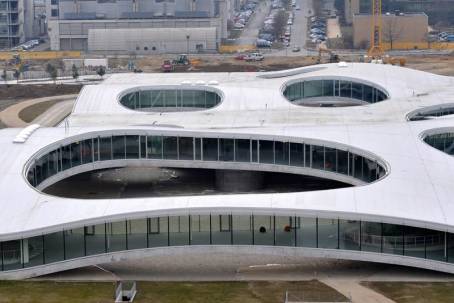
École Polytechnique F d rale de Lausanne (EPFL) is a higher educational institution in Lausanne in the French-speaking part of Switzerland. The school was originally a part of the University of Lausanne and was called École Sp ciale de Lausanne at that time. After Faculty of Techniques has joint it and successful work during many years, it was renamed in École d’ing nieurs de l’Universit de Lausanne in 1890. The name was preserved till the end of the World War II, after which it was renamed again into École polytechnique de l’Universit de Lausanne, EPUL (1946).
In 1969, EPUL became a separate institution of higher education under the present name of the EPFL. Since that time, the school has had the status of a technical university and is considered to be one of the most prestigious educational institutions in Europe. It is often compared with Massachusetts Institute of Technology in the United States.
Achievements: EPFL is number one university in Europe and it belongs to top 15 best universities in the world in the field of Engineering and Computer Sciences (Shanghai University Ranking in 2009).EPFL develops in the dynamic environment of Switzerland and world and focuses on the three main missions: education, research and transferring of technology.
Federal Polytechnic School of Lausanne has 7 faculties:
Faculty of Architecture, Civil and Environmental Engineering
Faculty of Computer and Communication Sciences
College of Humanities
Faculty of Life Sciences
Faculty of Engineering
Faculty of Natural Sciences
Faculty of Technology Management
École Polytechnique F d rale de Lausanne (EPFL) is a higher educational institution in Lausanne in the French-speaking part of Switzerland. The school was originally a part of the University of Lausanne and was called École Sp ciale de
Read more
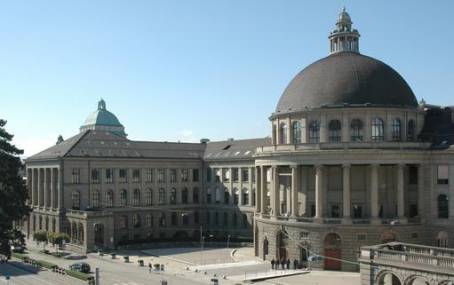
In 1854, young confederate Switzerland had a long debate on the issue of reasonability to develop the federal higher education alongside the already existing cantonal one. As a result, on February 7th of the same year the law "About the Federal Polytechnic Education with the aim of studying exact, polytechnic sciences and humanities" was approved and modern ETH has started to operate from 16, October 1855 in the city of Zurich.
It was decided to locate the new educational institution in a new building. To do this the canton and the city of Zurich has announced an architectural competition, which was won by the German architect Gottfried Semper. The building was constructed according to Gottfried Semper’s design in 1858-1864, and since then, ETH in Zurich has become a driving force of the Swiss industry, whose innovative products and services are in demand worldwide.
Today, ETHZ offers studying on the 5 faculties:
Faculty of Architecture and Civil Engineering
Faculty of Engineering Sciences
Faculty of Natural Sciences and Mathematics
Faculty of System-oriented Natural Science
Faculty of Management and Social Sciences
In 1854, young confederate Switzerland had a long debate on the issue of reasonability to develop the federal higher education alongside the already existing cantonal one. As a result, on February 7th of the same year the law "About the Federal Polyt
Read more











